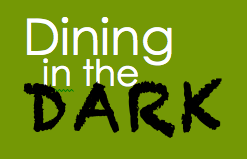Free trade was meant to promote mutual gains for traders without the interference of governmental regulations. Through comparative advantage, both parties within the trade agreement were meant to benefit. Throughout high school, we have been taught that free trade agreements, such as NAFTA, have been some of the greatest things for countries. However, as the turn of the 21st century passed us, the gap in the distribution of wealth has become even more dramatic. For example, according to livemint.com, India, which as 16 % of the world's population owns less than 2% of the world's wealth. With only a small percentage of the world holding a majority of the wealth and the majority of the world holding a small amount of wealth, one begins to wonder if past globalization agreements have actually been beneficial.
In less developed countries, the introduction of trade and globalization has been devastating to the economy. Trade was originally meant to allow for traders to focus on a specific task that he/she excelled at, allowing for equal gains by all. However, in recent years, more developed countries have been exploiting the desperation of workers in less developed countries to produce high priced products for pitiful wages. The exploitation of desperation was never the intention of free trade or globalization, but it seems to have been the consequence. And there needs to be something done.
 |
| Fair Trade Certifying Logo |
In 1998, Fair Trade USA, and more recently TransFair Canada, have launched a fair trade certification. This is the only company that correctly ensures that workers at all levels are treated fairly.
Now what is the difference between fair trade and free trade? Fair trade ensures that desperate workers are NOT exploited by greedy conglomerates but certifying that fair wages and good working conditions are provided. From coffee to clothes to vodka, fair trade has begun certifying all sorts of products and it is up to YOU to become the socially conscious consumer that you are and support these causes.
So, how does this relate to dining out? Next time you go to your favourite coffee shop, ask if they are serving fair trade coffee. Even better, make sure that they are certified by the Transfair logo. If they are not, inform that they Transfair is the only company that can guarantee fair trade certification and encourage them to change suppliers! Your opinions DO matter and CAN make a difference!
For more information of the benefits of fair trade, please visit the fair trade website or watch the following video.
Till then, stay bright (and fair)!
-Dining in the Dark


No comments:
Post a Comment